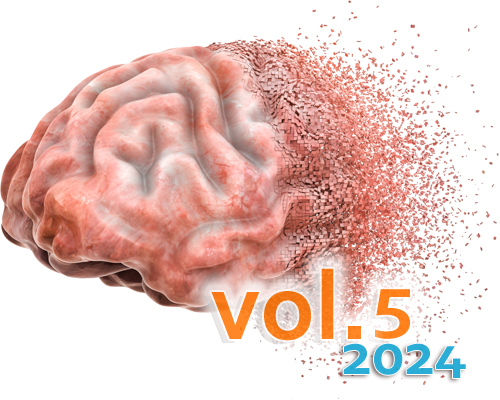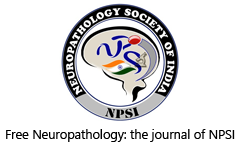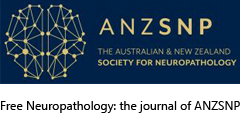Fast-track neuropathological screening for neurodegenerative diseases
DOI:
https://doi.org/10.17879/freeneuropathology-2024-5643Keywords:
Neuropathology, Dementia, Movement disorders, Prion disease, Alzheimer disease, Lewy body diseaseAbstract
Background: The postmortem diagnostic of individuals having suffered presumptive neurodegenerative disease comprises exclusion of a prion disease, extensive brain sampling and histopathological evaluation, which are resource-intensive and time consuming. To exclude prion disease and to achieve prompt accurate preliminary diagnosis, we developed a fast-track procedure for the histopathological assessment of brains from patients with suspected neurodegenerative disease.
Methods: Based on the screening of two brain regions (frontal cortex and cerebellum) with H&E and six immunohistochemical stainings in 133 brain donors, a main histopathological diagnosis was established and compared to the final diagnosis made after a full histopathological work-up according to our brain bank standard procedure.
Results: In over 96 % of cases there was a concordance between the fast-track and the final main neuropathological diagnosis. A prion disease was identified in four cases without prior clinical suspicion of a prion infection.
Conclusion: The fast-track screening approach relying on two defined, easily accessible brain regions is sufficient to obtain a reliable tentative main diagnosis in individuals with neurodegenerative disease and thus allows for a prompt feedback to the physicians. However, a more thorough histological work-up taking into account the clinical history and the working diagnosis from fast-track screening is necessary for accurate staging and for assessment of co-pathologies.
Metrics
Published
How to Cite
Issue
Section
License
Copyright (c) 2024 Benjamin Englert, Sigrun Roeber, Thomas Arzberger, Viktoria Ruf, Otto Windl, Jochen Herms

This work is licensed under a Creative Commons Attribution 4.0 International License.
Papers are published open access under the Creative Commons BY 4.0 license. This license lets others distribute, remix, adapt, and build upon your work, even commercially, as long as they credit you for the original creation. Data included in the article are made available under the CC0 1.0 Public Domain Dedication waiver, unless otherwise stated, meaning that all copyrights are waived.



















